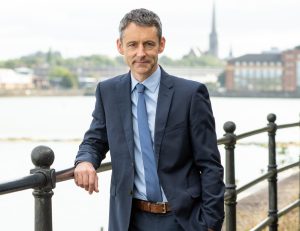Airport trials X-ray security technology

MANCHESTER Airport is trialling X-ray imaging technology, which could replace pat- down searches including the need to remove coats, jackets, shoes and belts.
The security trial of Rapiscan’s imaging technology in Terminal 2 works by bouncing X-rays off an individual’s skin to produce an outline image of the person’s body which is then used to detect concealed, potentially dangerous objects.
This image is transmitted to a remote security officer who then electronically confirms if the passenger can proceed or whether a search is required.
Sarah Barrett, Manchester Airport’s head of customer experience, said: “Our passengers tell us that they don’t like being patted down by security staff at airports but they understand that it’s a necessary part of keeping them safe.
“Imaging technology offers a potential alternative but we know that some people see it as controversial. That’s why we’re running a trial. We’re being completely open about how imaging technology works so that passengers can tell us whether it is an acceptable alternative”.
Ms Barrett also gave assurances that, contrary to popular misconception, imaging technology does not allow security staff to see passengers naked.
“The image produced is a black and white, ghost-like outline of an individual’s body without any distinguishing features such as hair or facial features, making it impossible to recognise people but simple to detect concealed threats,” she said.
The imaging technology trial operates in Terminal 2 only and will run for at least 12 months or until enough data is gathered to assess all aspects of the equipment.
Meanwhile passenger numbers at the airport dipped below two million last month as recession-hit consumers cut their spending.
The number of travellers was down 8.8% to1.95m, compared with September 2008. Charter traffic saw the biggest drop, down 13% from 852,757 to 741,813.
A spokesman said: “In common with the industry, when compared to last year, September’s passengers numbers are down.
“This is a consequence of people being more careful with their money although the all-important annual summer holidays still took place.”








